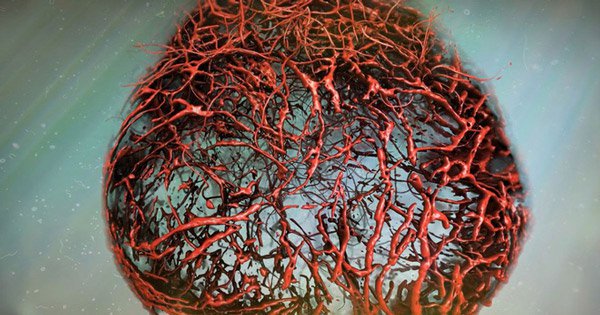Scientists successfully cultivate the perfect human vascular system in the laboratory
Researchers from the University of British Columbia, Canada have successfully developed the first artificial human vascular system from stem cells in the laboratory. The study was published in the journal Nature.
According to scientists, this artificial blood vessel promises to help them find treatments for a variety of diseases such as wound healing, Alzheimer's, cardiovascular disease, cancer and especially diabetes. sugar, diseases related to the circulatory system.

For people with diabetes, their blood vessels are often thickened, causing the transport of oxygen and nutrients to cells and tissues to weaken. This is the cause of health problems and complications such as kidney failure, blindness, heart attack and stroke . that diabetics suffer.
In the report, the researchers described in detail how they could orient stem cells to develop into the "organoids" of human blood vessels in the laboratory.
Organoids are descriptive terms for 3D cell systems, which are responsible for simulating a part to all organ or tissue characteristics, cultured in a laboratory. Organoids are used to serve drug tests. In the future, scientists hope that organoids will develop sophisticatedly to replace human organs.
After being grown in a laboratory, organoids were placed in a petri dish, similar to the diabetes environment inside the patient's body. The blood vessels begin to thicken, similar to the thickness in the blood vessels of real diabetics. Researcher Reiner Wimmer said they had anticipated this.
 Organoids vascular system is developed in the laboratory.
Organoids vascular system is developed in the laboratory.
Scientists have tested on a variety of chemical compounds. They eventually found a y-secretase enzyme inhibitor, a potential candidate to prevent this abnormal thickening effect.
When adding the y-secretase enzyme to the petri dish, the thickening of the blood vessels soaked in the diabetic medium has stopped. According to researcher Josef Penninger, y-secretase enzyme inhibitors may be a useful way to treat diabetes.
According to scientists, the organoids vascular system that they developed in the laboratory promises to bring many other potential applications.
See more:
- Turn copper into a material that closely resembles gold
- Surprisingly, good looking too badly affects your career
- 8 body reactions help people resist the cold of winter